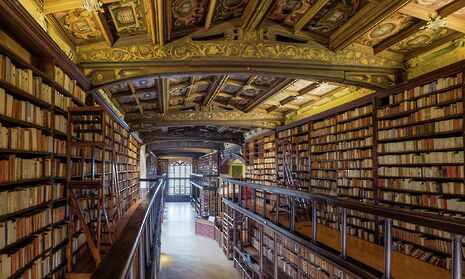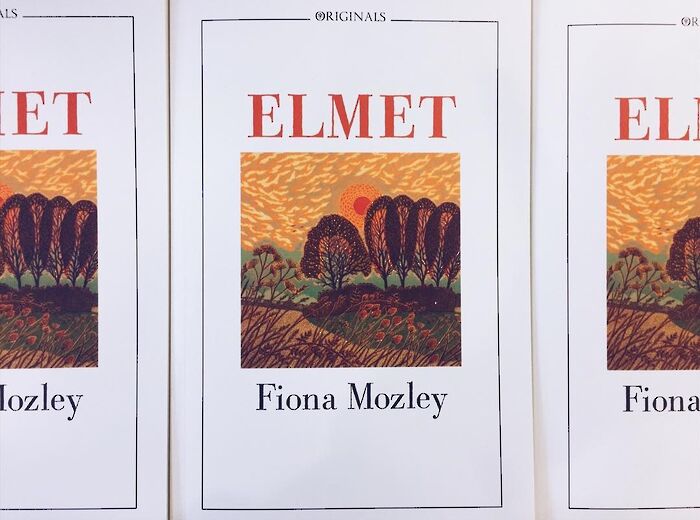Dreaming spires and rational rooftops: Why is Oxford mystified more than Cambridge?
Madeleine Bishop charts the representations of Oxbridge in literature, and gets to the bottom of why we fare worse than our friends at Oxford

As a Cambridge English student, I’m not infrequently confronted with the arts vs. sciences stereotype that some use to distinguish the two functionally indistinguishable entities that are Oxford and Cambridge – what Sheldon Rothblatt calls ‘the party games of more than a century that contrast cool, rational, sober, scientific Cambridge to aesthetic, literary, playful and dreaming Oxford’. Over the summer I went into my local sixth form college to advise Oxbridge applicants interviewing for English; among the twelve or so students I talked to, only one was applying to Cambridge. I can’t count the number of times I’ve been asked why I didn’t apply to Oxford.
There is considerable precedent for this: historically, Cambridge has taken a much more modern approach to the sciences, and at one point, even Classics students were required to take tests in mathematics. Cambridge has produced more Nobel Prize winners and Oxford more Prime Ministers. Our region is known for the Silicon Fen. On the other hand, Cambridge has had, and continues to have, a rich and thriving literary tradition – Byron, anyone? Milton? Wordsworth? Zadie Smith? Let alone our legendary theatre scene.
“Oxford is just a bigger fantasy, one which is maybe a little less self-aware”
And yet there is no denying that Oxford has captured the literary imagination. In fact, it seems to me that the representation of Oxford in literature – its representation as ‘dreaming’ – might have something to do with its lingering association with the arts, and with English in particular. Matthew Arnold, of course, coined the phrase ‘dreaming spires’ in his poem Thyrsis, but think of Brideshead Revisited, His Dark Materials, even Inspector Morse. There are many more besides. A study by Ian Carter showed that of the 206 novels featuring British academic life published between the years 1945 to 1988, 119 depicted Oxford while only 26 depicted Cambridge.
The literature written about Cambridge that first springs to mind – and it does require more thought – seems of a somewhat different type or tone to that of Oxford. Porterhouse Blue, Dirk Gently’s Holistic Detective Agency, Rupert Brooke’s The Old Vicarage, Grantchester, Clive James’s memoir May Week Was in June. Maybe it’s flawed to take myself as representative, but that’s the best I could do without a bit of Googling. These works don’t really glorify or elevate Cambridge – if anything, they foreground its ridiculousness. Oxford fiction is also often satirical, but is generally mixed with more intense aesthetic attraction to the city and what it represents, in the manner of Brideshead. Taken to admittedly simplistic extremes, it’s the difference between Arnold’s soaring Thyrsis and Brooke’s Grantchester, which playfully subverts aspects of the nostalgic-pastoral tradition within which Arnold worked. Far from celebrating dreaming spires, Brooke longs ‘to smell the thrilling-sweet and rotten / unforgettable, unforgotten / river smell’ of Cambridge. The literature that he chooses to invoke – something that could be highly mystifying – is Chaucer’s comedic and somewhat rude tale of a Cambridgeshire miller’s encounter with two young students. The effect is one of touchingly grounded, clear-sighted and domestic fondness for the area, a celebration which is not a glorification.
‘Oxford is Oxford,’ wrote E. M. Forster, an alumnus of King’s, ‘not a mere receptacle for youth, like Cambridge. Perhaps it wants its inmates to love it rather than to love one another.’ The character he is writing of here is in love with the idea of Oxford, and ‘understood it all the better because it was empty’. The mystification of Oxford and its dreaming spires is ultimately empty because it is a love of abstraction, of greatness and in some way of unreality. This is not a phenomenon peculiar to Oxford; Oxbridge as a whole is something of a construct beholden to the myth of itself, and the University of Cambridge as an institution can often be self-congratulating and lacking in self-criticism. Nonetheless, I would suggest that ‘Oxford-the-idea’ constructs its own myth more aggressively than ‘Cambridge-the-idea’, which in my experience takes more care to foreground its own constructedness and often arbitrariness.
I’m talking about literature, but also in part about popular culture. There is perhaps a relationship here to the Memebridge attitude, the self-reflexivity with which we simultaneously congratulate ourselves for being part of the Cambridge myth and point out both its foibles and its more serious failings. I certainly both feel the weight of ‘Cambridge-the-idea’ and understand it to be a construct. Lars Lyer once wrote that ‘Only the tourists really understand Cambridge… Cambridge is only there to be photographed: that’s what they grasp. Cambridge is a collective fantasy.’ Oxford is just a bigger fantasy, one which is maybe a little less self-aware. But I might be wrong about that – perhaps I’m placing too much importance on the fact that we have no equivalent word for ‘Tab’.
Maybe the difference – if there is indeed one – is in the scientific scepticism of the Cambridge tradition: the cool, rational sobriety that Rothblatt alludes to. But I would argue that this attitude is in fact playful, and more literary in its self-reflexivity than scientific
 News / Hundreds of Cambridge academics demand vote on fate of vet course20 February 2026
News / Hundreds of Cambridge academics demand vote on fate of vet course20 February 2026 News / Judge Business School advisor resigns over Epstein and Andrew links18 February 2026
News / Judge Business School advisor resigns over Epstein and Andrew links18 February 2026 News / Petition demands University reverse decision on vegan menu20 February 2026
News / Petition demands University reverse decision on vegan menu20 February 2026 News / University Council rescinds University Centre membership20 February 2026
News / University Council rescinds University Centre membership20 February 2026 News / CUCA members attend Reform rally in London20 February 2026
News / CUCA members attend Reform rally in London20 February 2026










